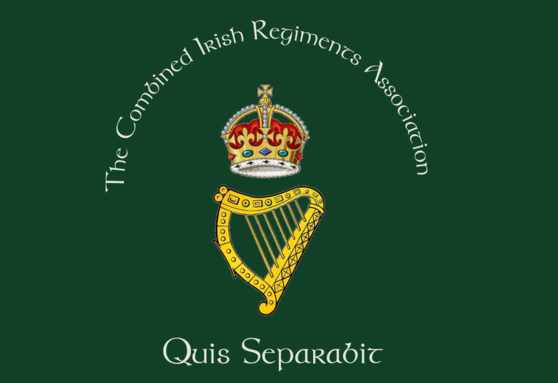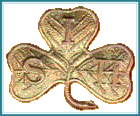
SOUTH IRISH HORSE.
The Regiment was a Special Reserve Cavalry Regiment, which was formed on 2nd January 1902, initially known as the South of Ireland Imperial Yeomanry, before being renamed the South Irish Horse on 7th July 1908 and transferring to the Special Reserve.
The declaration of war against Germany in August 1914 found the South Irish Horse at summer camp, as was its sister regiment the North Irish Horse. Together, they supplied a composite Regiment which acted as GHQ (General Headquarters) troops in the BEF in France - B Squadron coming from the South Irish Horse and two others from the North Irish Horse.
At the time, squadrons were based at:
HQ - Artillery Barracks, Limerick.
A Squadron - Beggars Bush Barracks, Dublin.
B Squadron - Artillery Barracks, Limerick.
C Squadron - Glen House, Ballyvolane, Cork.
D Squadron - Beggars Bush Barracks, Dublin
The Regiments' battalions served as separate Divisional Cavalry Squadrons and then as two Corps Cavalry Regiments. In September 1917, the officers and men of both these Regiments were retrained as infantry and formed 7th (South Irish Horse) Battalion, Royal Irish Regiment and the battalion was posted to 49th Infantry Brigade in 16th (Irish) Division. On 21st March 1918, the battalion was caught in the maelstrom of the German Spring offensive.
The Official History records that, "2 Coys of 7/Royal Irish, posted in forward zones, suffered terribly; not a man succeeded in escaping." 77 officers and men of 7th (SIH) Royal Irish Regiment were killed in action that day, 42 were formerly South Irish Horse. 14 officers of the battalion were also captured that day, 6 of whom were formerly South Irish Horse. By the end of the month, over 90 men of the battalion had been killed.
Read more about the actions of the South Irish Horse during the First World War.
The Regiment was one of the six British Army regiments disbanded in 1922, having existed for a total of 20 years.
